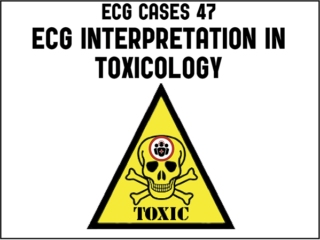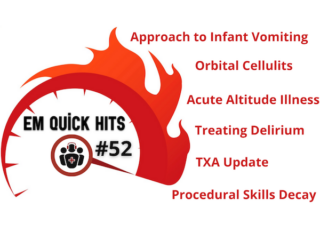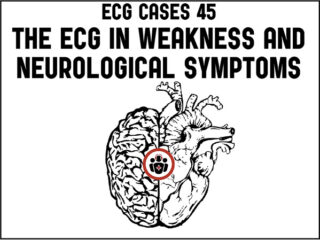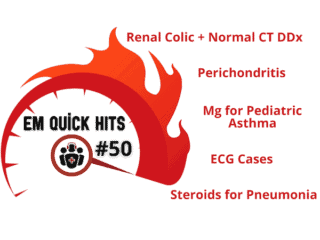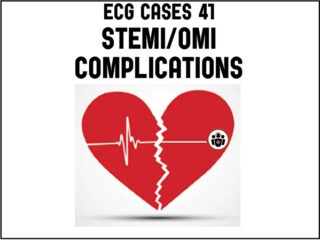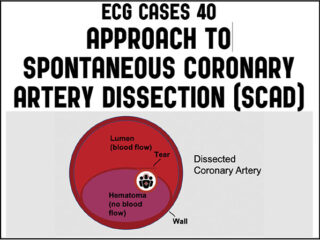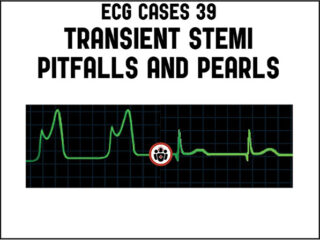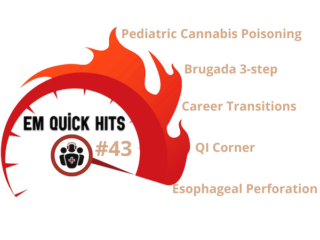ECG Cases 47 – ECG Interpretation in Toxicology
In this ECG Cases Dr. Jesse McLaren delves into ECG interpretation in toxicology and the poisoned patient using his HEARTS approach in 7 case examples. Heart rate/rhythm: consider antidotes for brady/tachy-arrhythmias, and for sinus tachycardia consider fluids for vasodilation and benzodiazepines for agitation. Electrical conduction and axis: consider sodium bicarb for QRS > 100 especially if RBBB or terminal rightward shift, and magnesium for QTc> 500. ST/T changes: consider the differential including demand ischemia, associated electrolyte abnormalities, Brugada pattern from sodium channel blockade, and acute coronary occlusion vs vasospasm from cocaine...

